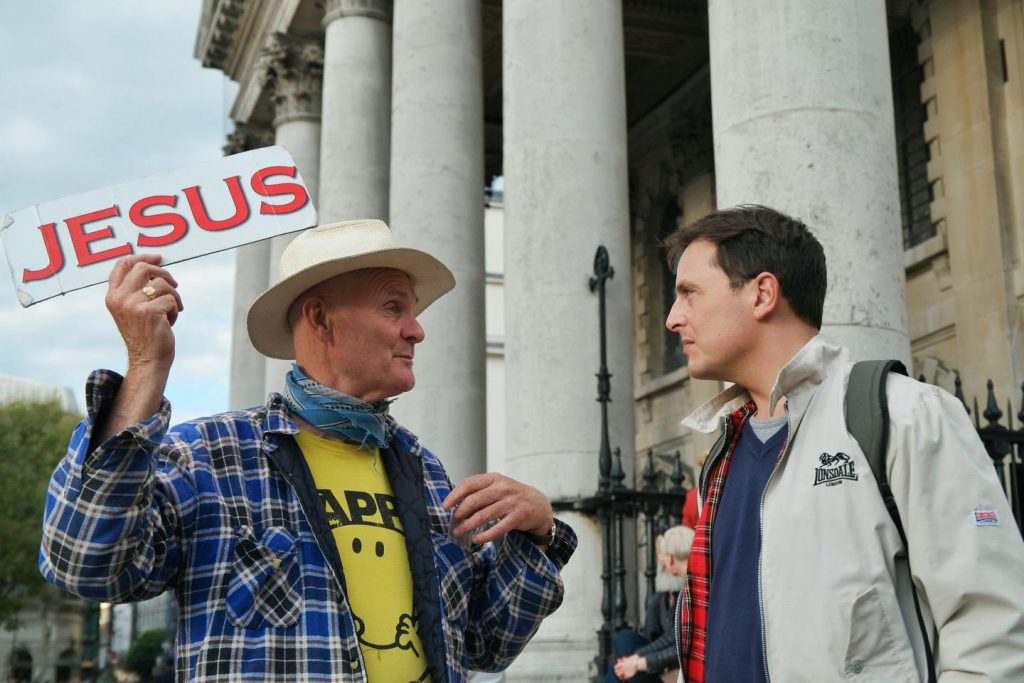
Most parents can tell you that they know their children. After all, they were there when the child was born. They were there when the child took their first steps. They were there when the child first learned how to color. They were there at every stage of the child’s development. Yet as the child grows into an adult, many parents are surprised by the abilities and talents their child develops and the choices their child makes. People are complicated, and even a loving parent who watches their child grow every day can come to realize that they really didn’t know them that well. Yet if that is true of our children, how much more is it true of God? Jesus said, “No one knows the Son except the Father…”
We may come to know the Son as Christ our Savior. But everyone who does still needs to get to know Him as Lord. Once we know Him as our Savior and Lord, we yet need to know Him as our Sanctifier. And once we’ve known Him as our Sanctifier, we still need to know Him as our Healer. And once we’ve known Him as our Healer, we still need to know Him as our Coming King. There is always much more of the Son to know than we have presently grasped. Infinitely so. Only our Father in heaven can really know the Son, because only our Father in heaven has the infinite capacity and the perfect communication, surrender and intimacy to truly know the Son.
Of course, much of that is revealed in the Bible. But even that has limitations. Consider that if the love of our lives were to write us a book about themselves, it still couldn’t hope to contain all they are or all they’ve done. People are dynamic and complicated. The life and lifetime of a single person cannot be reduced to ink on the pages in a single book. How much less can God be reduced to a few thousands of words? To that point John ended his Gospel with, “Jesus did many other things as well. If every one of them were written down, I suppose that even the whole world would not have room for the books that would be written.”
The human capacity to remember, to put into context and to apply the teachings of Jesus is limited. Jesus Himself is not limited. So even though what we can know of Him is currently restricted to what we read in the Scriptures and perceive in prayer, there is simply no way for us to grasp the awesome wonder and the infinite mystery of all Jesus is, or all He has done and is doing. After all, He hasn’t stopped teaching or doing wonders since the close of the Biblical canon. He’s just been doing them through His body (the church) for the last two thousand years! Besides which, we can’t even exhaust what the Word teaches us about Jesus, because God’s Word is living and active. From that perspective surely no one can really know the Son, except the Father.
The reality of this is both practical and manifold. Not only can we preach and teach about Jesus for our whole lives and not run out of enormously applicable content, but we can also look forward to spending eternity in ever-deeper relationship with Him, knowing we’ll never get weary of spending time with Him. There is always something fresh, something exciting and something new to discover about our Lord Jesus Christ! That fact alone makes the Christ-life an abundant life, because we are constantly discovering something new about the author of life!
Professor Schaefer, a five-time nominee for the Nobel Prize who has also been cited as the third most quoted chemist in the world, said, “The significance and joy in my science comes in those occasional moments of discovering something new and saying to myself, ‘So that’s how God did it.’ My goal is to understand a little corner of God’s plan.
Mark Water
APPLICATION: Thankfulness
The Lord has given us this day at least in part to discover something new about Him. Let us seek Him for that and joyfully return thanks when He shows it to us!









